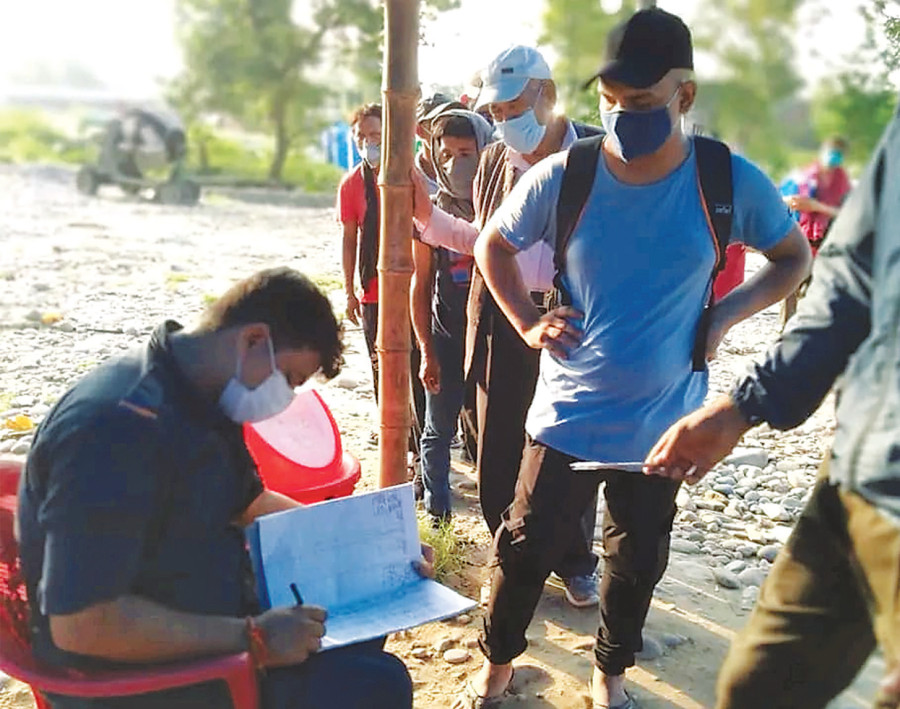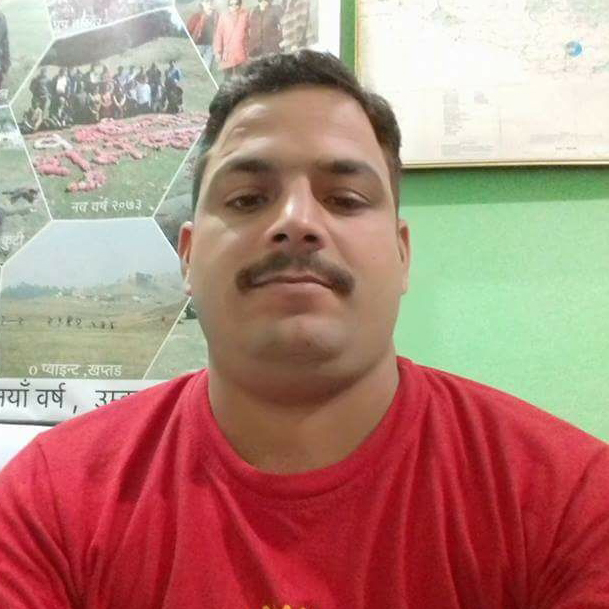National
India returnees found infected with coronavirus
Nine persons test positive but it’s not yet ascertained whether they carried JN.1 variant.
Bhawani Bhatta
A number of Nepalis who recently returned home from India have tested positive for coronavirus in Sudurpaschim Province.
As many as nine returnees have tested positive for the virus at Gauriphanta border point of Kailali district over the past 10 days. The health desk at the border point has intensified testing as JN.1, a new sub-variant of the coronavirus, is spreading in India lately.
According to Ganesh Saud, in-charge of Gauriphanta health desk, nine people tested positive for coronavirus while conducting antigen testing of 300 people from December 19 to 29. He said most of the infected people returned homes from Delhi, Chandigarh, Bangalore and Hyderabad cities in India. According to him, the health desk is currently conducting testing of only the symptomatic and suspicious persons.
“It is not clear whether the virus detected is JN.1,” Saud said. “We have sent the swab samples to the National Public Health Laboratory in Kathmandu for confirmation.”
According to Saud, the infected people were sent home on condition that they sequester themselves at home. “We sent them home on passenger buses urging them to wear face masks and use sanitiser,” he said.
India has been witnessing a surge in new cases of Covid-19 and has also confirmed an outbreak of JN.1 sub-variant. The JN.1 sub-variant, first detected in September in the United States, is a descendant of BA.2.86, which is a highly mutated variant of the Omicron strain of Covid-19. Experts in Nepal have urged the authorities to step up vigilance as they said that any virus variant or disease seen in any corner of the globe could enter the country due to the global movement of people.
Meanwhile, Gaddachauki border point in Kanchanpur district has also been carrying out coronavirus testing of the suspicious people entering Nepal. The testing started on December 23, according to Prem Singh Bhandari, in-charge of Gaddachauki health desk. Of the 250 people who enter Nepal on a daily basis through Gaddachauki, officials are conducting antigen testing of around 30 people, Bhandari said, adding that nobody has tested positive for the virus so far.
Bhandari, however, complained that the health desk could not conduct testing of the people entering Nepal through friendship buses that provide direct bus service to New Delhi and Dehradun as those vehicles do not stop at the border point. “But we have urged the district administration and the security agencies to stop the buses at the border point so that we can carry out coronavirus testing of the suspected people,” he said.
Health workers are worried about the community transmission of the disease as the infected people go home on the passenger buses. “The infected people should be compulsorily kept in isolation,” Bhandari said. “Otherwise, there is a high risk the virus will penetrate the communities.”




 9.89°C Kathmandu
9.89°C Kathmandu














